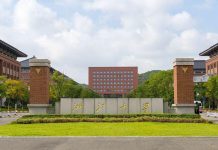King David University Nursing School is renowned for providing high-quality education and training for aspiring nurses in Nigeria. Despite the relatively higher tuition fees, the school’s reputation and comprehensive curriculum make it a worthy investment for those pursuing a successful nursing career. This article delves into the details of King David University Nursing School fees, including tuition costs for Nigerian and international students, as well as additional expenses such as accommodation and textbooks.
Tuition Fees for Nigerian and International Students
The tuition fees at King David University Nursing School are tiered based on the student’s nationality. Nigerian students are required to pay N2 million annually, while international students face a higher fee of N10 million per year. These charges cover essential aspects such as tuition, accommodation, and meals, ensuring a conducive learning environment.
Additional Expenses
In addition to tuition fees, students need to budget for supplementary expenses like textbooks, transportation, and medical insurance. Textbooks typically cost around N50,000 annually, with transportation expenses averaging N20,000 per year. While medical insurance is optional, it is strongly recommended to ensure students’ well-being during their academic journey.
Affording King David University Nursing School Fees:
As the tuition fees may pose financial challenges for some students, there are several strategies to help make attending King David University Nursing School more feasible:
- Scholarships: Students can explore numerous scholarships available to nursing students in Nigeria and abroad, providing financial aid and alleviating the burden of tuition costs.
- Student Loans: Student loans are an option to consider; however, caution is advised to ensure manageable repayment after graduation.
- Part-Time Work: Students can take advantage of part-time job opportunities within the university, such as teaching or research assistants, to contribute towards their tuition expenses.
Frequently Asked Questions
For individuals seeking a career in nursing, here are answers to common questions about the profession in Nigeria:
What are the requirements to become a nurse in Nigeria?
The requirements vary based on the desired level of education. To become a registered nurse (RN), a bachelor’s degree in nursing is required. A master’s degree in nursing is necessary for those aspiring to become nurse practitioners (NPs).
What are the job prospects for nurses in Nigeria?
The nursing profession in Nigeria offers promising job prospects, given the expanding healthcare industry and the consistent demand for skilled nurses.
What are the salaries for nurses in Nigeria?
Nurses’ salaries depend on their education and experience. Registered nurses typically earn between N100,000 and N200,000 per month, while nurse practitioners earn between N200,000 and N300,000 per month.
What challenges do nurses face in Nigeria?
Nurses in Nigeria encounter challenges such as low salaries, subpar working conditions, limited resources, and instances of violence against healthcare workers.
Conclusion
King David University Nursing School stands as a prestigious institution in Nigeria, imparting quality education to prospective nurses. While the tuition fees are substantial, the investment aligns with the potential for a rewarding nursing career. Aspiring students can explore scholarships, student loans, and part-time work options to make their educational journey at King David University Nursing School financially attainable.
Also Read: King David University Cut Off For Medicine And Surgery

